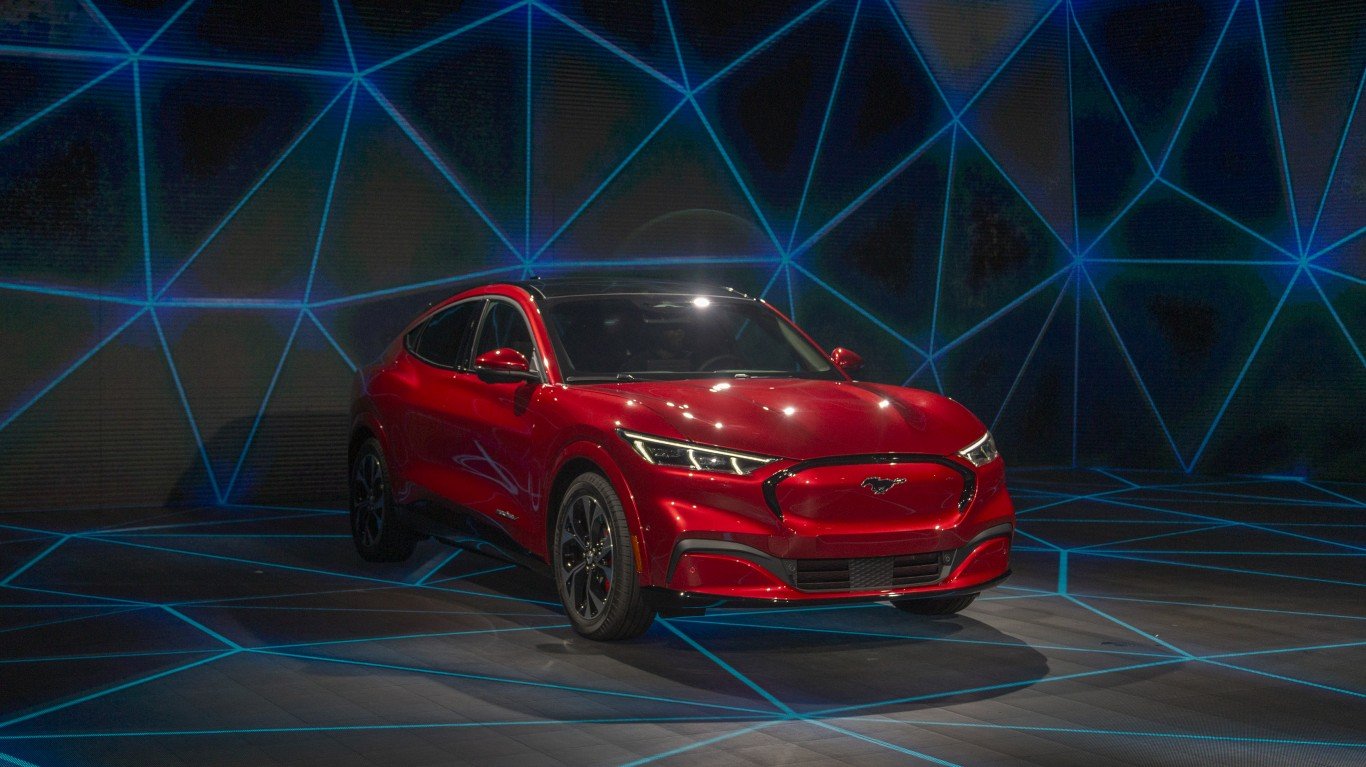

President Joe Biden visited in 2021 a General Motors factory in Detroit, touting tax incentives for the purchase of electric vehicles. As Biden, a longtime car enthusiast, was driving GM’s new 1,000-horsepower GMC Hummer electric pickup truck around the factory lot, he told a crowd of journalists, “These suckers are something else!”
Indeed, though electric cars have been around for more than a century, it was not until energy storage technology advanced enough in recent decades that they became “something else.”
The rapid global growth in EVs and other low-emission passenger vehicles has hit an inflection point as the world’s largest automakers have begun planning for a world where battery-powered electric drivetrains replace dirtier internal combustion engines.
To find the EV ambitions of the world’s largest automakers, 24/7 Wall St. reviewed several sources, including the International Energy Agency’ Electric Vehicles and company and media reports. We ranked the 23 car companies found on the Fortune Global 500 by their 2022 EV sales, using data from EV-volumes.com – the electric vehicle sales database.
The countries with auto companies that have sold the most passenger electric vehicles domestically and worldwide last year are China, with more than 2 million units sold, the United States, with nearly 2 million units, led by Tesla’s 1.3 million deliveries, and Germany, with about 960,000 EV sales in 2022. (Also see, the most efficient cars on the market.)
China, whose large cities are choking in smog, wants one out of every five new-vehicle purchases to be electric cars by the end of 2025. Germany’s big three automakers – Mercedes-Benz, Volkswagen, and BMW – have committed to converting all, most, or half of their global sales, respectively, to electric vehicles by 2025 or 2030. U.S.-based automaker Ford wants a third of its global sales coming from EVs by 2026, while General Motors has a goal of building 30 EV models by 2025. Tesla CEO Elon Musk has established an audacious goal of selling 20 million EVs in 2030. Last year, 23 of the world’s largest car companies sold nearly 6.1 million passenger EVs.
But not all electric vehicles offer the same energy efficiencies. The weight of electric passenger cars can range from about 1,000 pounds for a European smart car to a staggering 4.5 tons for the new behemoth GMC Hummer EV, more than double the weight of Tesla’s Model Y and more than two times the weight of the Nissan Leaf. (These are America’s favorite pickup trucks.)
Heavier EVs require more energy to power and contain larger batteries with bigger carbon footprints thanks to the additional natural resource inputs required to make them, such as cobalt, most of which is extracted from Chinese-owned mines in the Democratic Republic of Congo. EVs are also less green in parts of the world where coal is the primary source for the generation of electricity.
In other words, while private EV ownership is an improvement over gasoline-powered cars, it is not a panacea for fixing the problem of global warming.
Here are the latest annual sales of electric cars by the world’s top manufacturers.
Click here to see our detailed methodology.
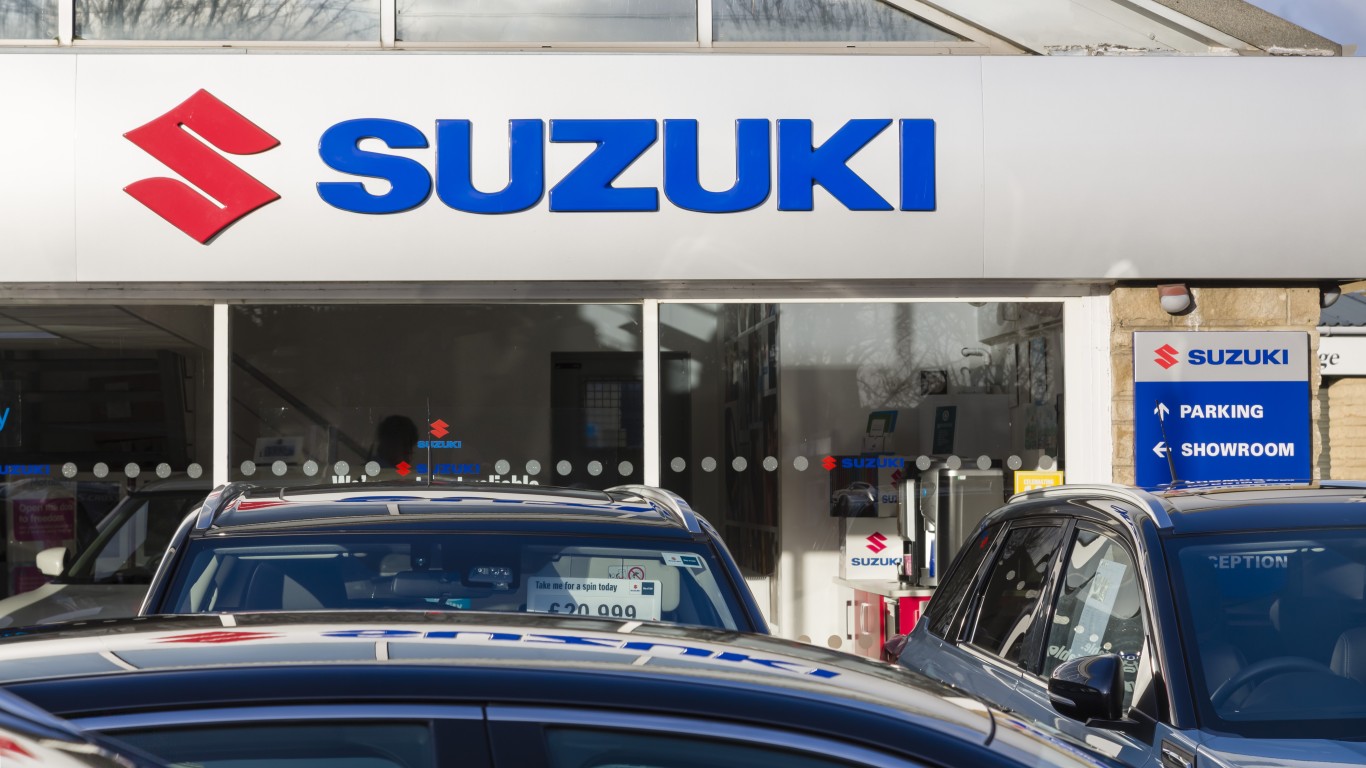
23. Suzuki Motor
> EV sales, 2022: 0 (-100% from 2021)
> Total low-emission car sales, 2022: 2,567 – 23 highest of 23 on list
> Revenue (most recent FY): $31.77 billion – No. 449 on Fortune Global 500
> Country: Japan
> Ambition: Will invest $34.8 billion through fiscal 2030 in R&D and to make BEVs with the first introduced on FY 2023; launch by fiscal 2030 6 EVS, or 15% of its line-up, in India, its main market
[in-text-ad]

22. Tata Motors
> EV sales, 2022: 7,300 (-27% from 2021)
> Total low-emission car sales, 2022: 36,503 – 22 highest of 23 on list
> Revenue (most recent FY): $37.80 billion – No. 370 on Fortune Global 500
> Country: India
> Ambition: Looks to raise $500 million-$600 million for its EV business; plans to launch 10 new electric models by 2026. The Indian gov’t wants to grow new electric vehicle share to 30% by 2030, which Tata plans to support

21. Honda Motor
> EV sales, 2022: 24,969 (+46% from 2021)
> Total low-emission car sales, 2022: 40,375 – 21 highest of 23 on list
> Revenue (most recent FY): $129.55 billion – No. 61 on Fortune Global 500
> Country: Japan
> Ambition: Strives to electrify two-thirds of global automobile unit sales by 2030; targeting sales of 100% zero emission electrified vehicles in N. America by 2040; aims to offer 30 all-electric vehicles globally by 2030, reaching annual volume of 2 million units

20. Toyota Motor
> EV sales, 2022: 25,169 (+33% from 2021)
> Total low-emission car sales, 2022: 116,796 – 18 highest of 23 on list
> Revenue (most recent FY): $279.34 billion – No. 13 on Fortune Global 500
> Country: Japan
> Ambition: 3.5 million annual electric car sales by 2030 and the rollout of 30â¯BEV models; Lexus to have EV versions for all models by 2035
[in-text-ad-2]
19. China FAW Group
> EV sales, 2022: 62,791 (+51% from 2021)
> Total low-emission car sales, 2022: 62,810 – 20 highest of 23 on list
> Revenue (most recent FY): $109.40 billion – No. 79 on Fortune Global 500
> Country: China
> Ambition: China set a goal of 20% of new car sales would be electric vehicles by 2025
18. Beijing Automotive Group (BAIC)
> EV sales, 2022: 71,304 (+27% from 2021)
> Total low-emission car sales, 2022: 71,496 – 19 highest of 23 on list
> Revenue (most recent FY): $74.69 billion – No. 162 on Fortune Global 500
> Country: China
> Ambition: China set a goal of 20% of new car sales would be electric vehicles by 2025
[in-text-ad]

17. Ford Motor
> EV sales, 2022: 105,359 (+89% from 2021)
> Total low-emission car sales, 2022: 181,967 – 17 highest of 23 on list
> Revenue (most recent FY): $136.34 billion – No. 53 on Fortune Global 500
> Country: US
> Ambition: One-third of sales to be fully electric by 2026 and 50% by 2030, with all-electric sales in Europe by 2030
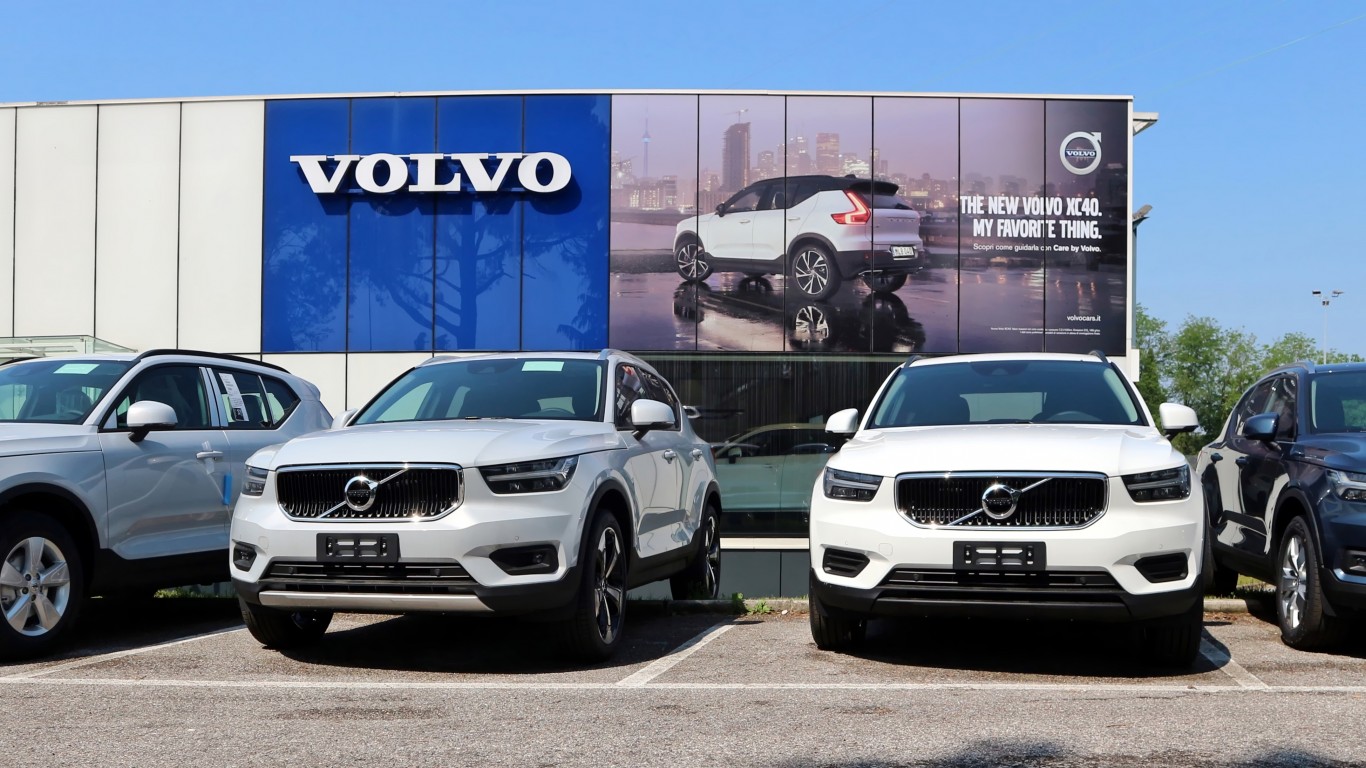
16. Volvo
> EV sales, 2022: 117,920 (+117% from 2021)
> Total low-emission car sales, 2022: 252,960 – 15 highest of 23 on list
> Revenue (most recent FY): $43.39 billion – No. 323 on Fortune Global 500
> Country: Sweden
> Ambition: Become a fully electric car company by 2030

15. Mercedes-Benz Group
> EV sales, 2022: 163,418 (+61% from 2021)
> Total low-emission car sales, 2022: 337,491 – 10 highest of 23 on list
> Revenue (most recent FY): $158.31 billion – No. 38 on Fortune Global 500
> Country: Germany
> Ambition: All newly launched vehicles will be fully electric from 2025
[in-text-ad-2]

14. SAIC Motor
> EV sales, 2022: 203,314 (+25% from 2021)
> Total low-emission car sales, 2022: 256,615 – 14 highest of 23 on list
> Revenue (most recent FY): $120.90 billion – No. 68 on Fortune Global 500
> Country: China
> Ambition: China set a goal of 20% of new car sales would be electric vehicles by 2025
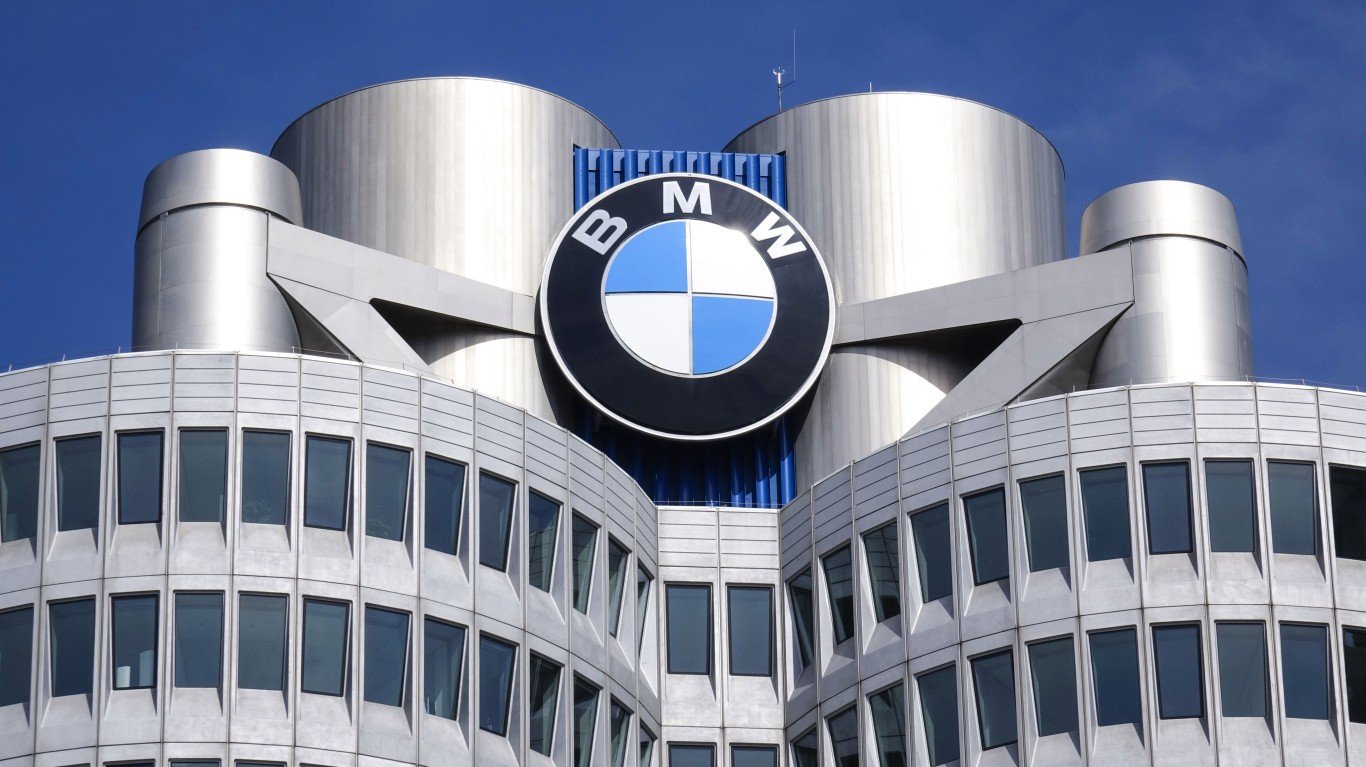
13. BMW Group
> EV sales, 2022: 218,621 (+109% from 2021)
> Total low-emission car sales, 2022: 433,150 – 8 highest of 23 on list
> Revenue (most recent FY): $131.52 billion – No. 59 on Fortune Global 500
> Country: Germany
> Ambition: 50% of vehicles sold to be fully electric by 2030 or earlier
[in-text-ad]
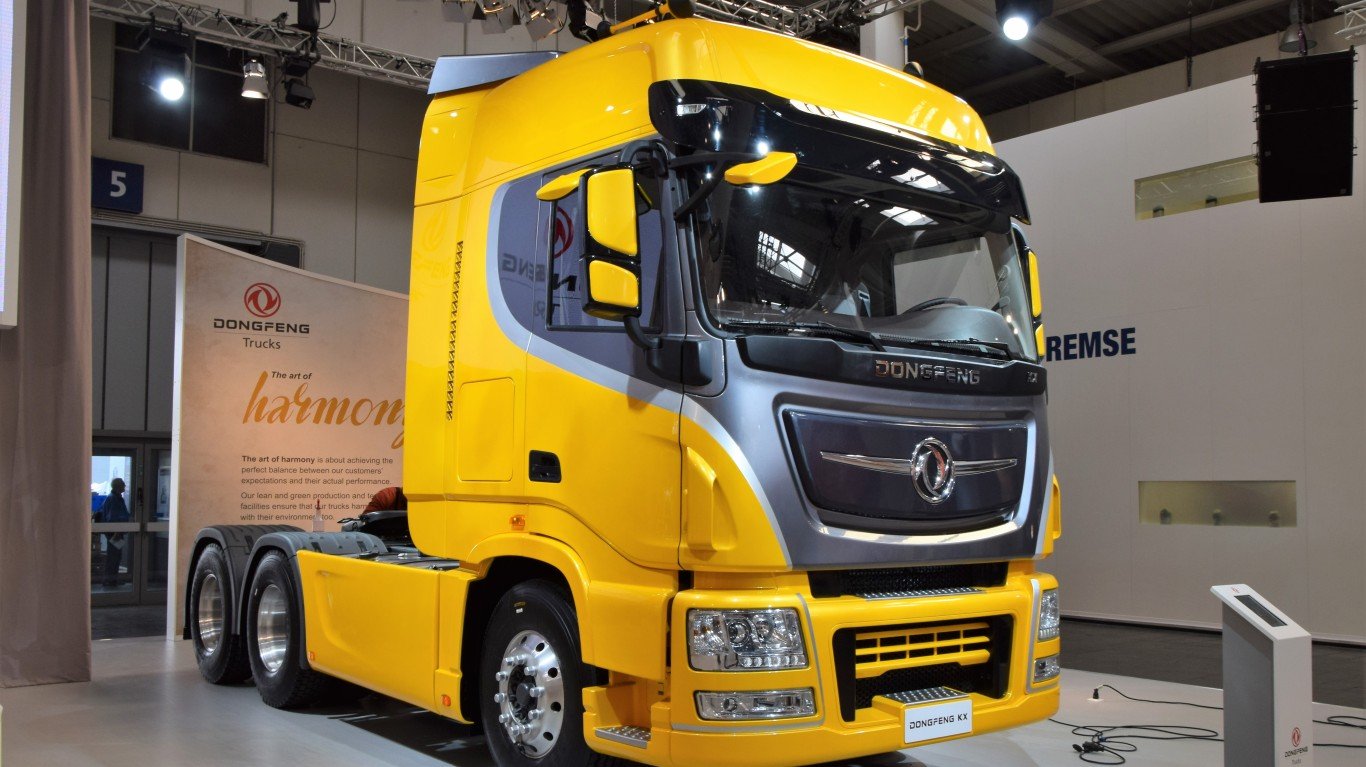
12. Dongfeng Motor
> EV sales, 2022: 222,746 (+136% from 2021)
> Total low-emission car sales, 2022: 238,050 – 16 highest of 23 on list
> Revenue (most recent FY): $86.12 billion – No. 122 on Fortune Global 500
> Country: China
> Ambition: China set a goal of 20% of new car sales would be electric vehicles by 2025
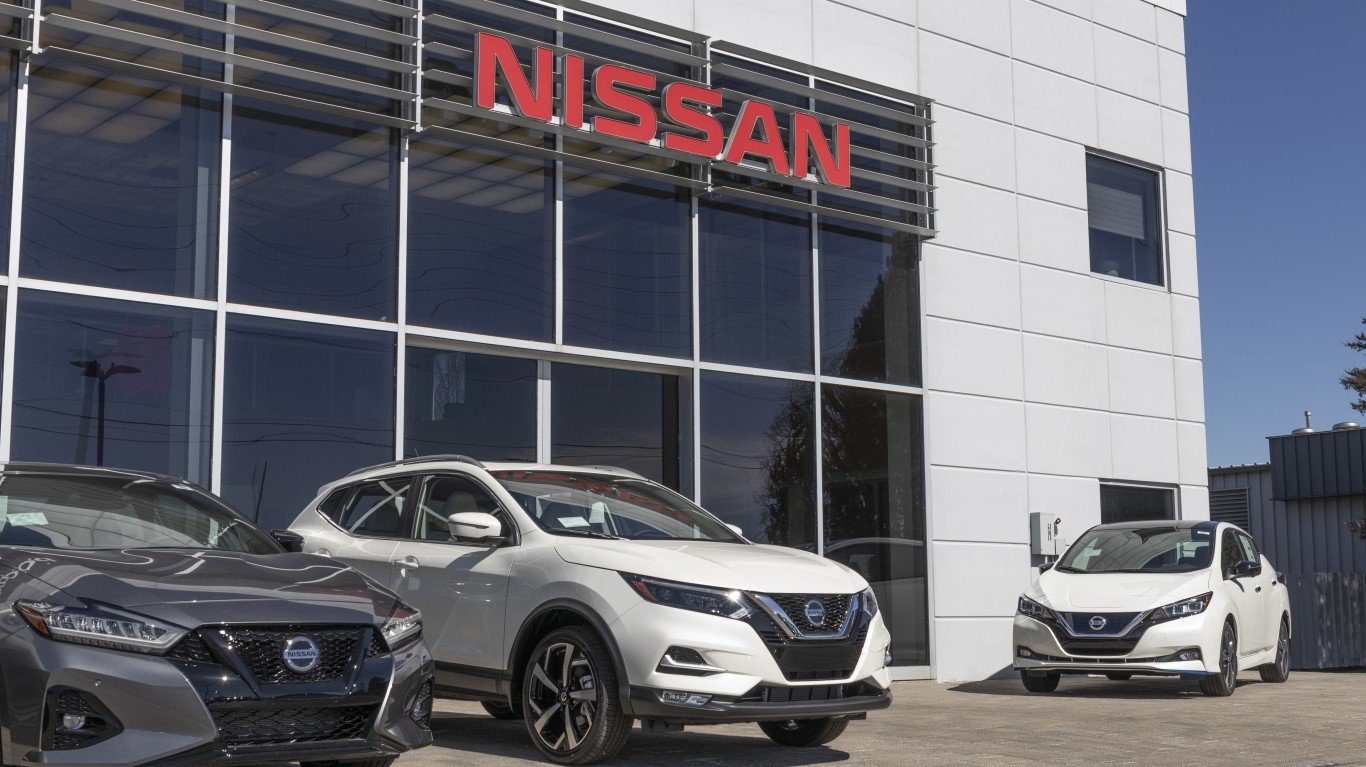
10. Nissan Motor
> EV sales, 2022: 258,992 (+21% from 2021) (EV sales are for R-N-M Alliance)
> Total low-emission car sales, 2022: 335,997 – 11 highest of 23 on list
> Revenue (most recent FY): $74.99 billion – No. 161 on Fortune Global 500
> Country: Japan
> Ambition: Additional $24.5 billion investment in EVs, leading to 35 new EV models by 2030

10. Renault
> EV sales, 2022: 258,992 (+21% from 2021) (EV sales are for R-N-M Alliance)
> Total low-emission car sales, 2022: 335,997 – 11 highest of 23 on list
> Revenue (most recent FY): $54.64 billion – No. 237 on Fortune Global 500
> Country: France
> Ambition: Additional $24.5 billion investment in EVs, leading to 35 new EV models by 2030
[in-text-ad-2]
9. Zhejiang Geely Holding Group
> EV sales, 2022: 265,811 (+274% from 2021)
> Total low-emission car sales, 2022: 351,356 – 9 highest of 23 on list
> Revenue (most recent FY): $55.86 billion – No. 229 on Fortune Global 500
> Country: China
> Ambition: Expects to reach 30% EVs by 2025

8. Guangzhou Automobile Industry Group
> EV sales, 2022: 287,467 (+130% from 2021)
> Total low-emission car sales, 2022: 287,845 – 13 highest of 23 on list
> Revenue (most recent FY): $66.96 billion – No. 186 on Fortune Global 500
> Country: China
> Ambition: China set a goal of 20% of new car sales would be electric vehicles by 2025
[in-text-ad]

7. Stellantis
> EV sales, 2022: 299,389 (+38% from 2021)
> Total low-emission car sales, 2022: 527,139 – 5 highest of 23 on list
> Revenue (most recent FY): $176.66 billion – No. 29 on Fortune Global 500
> Country: Netherlands
> Ambition: 100% of sales in Europe and 50% of sales in the US to be BEVs by the end of this decade and plan to offer more than 75 BEV models and reach global annual BEV sales of 5 million units by 2030
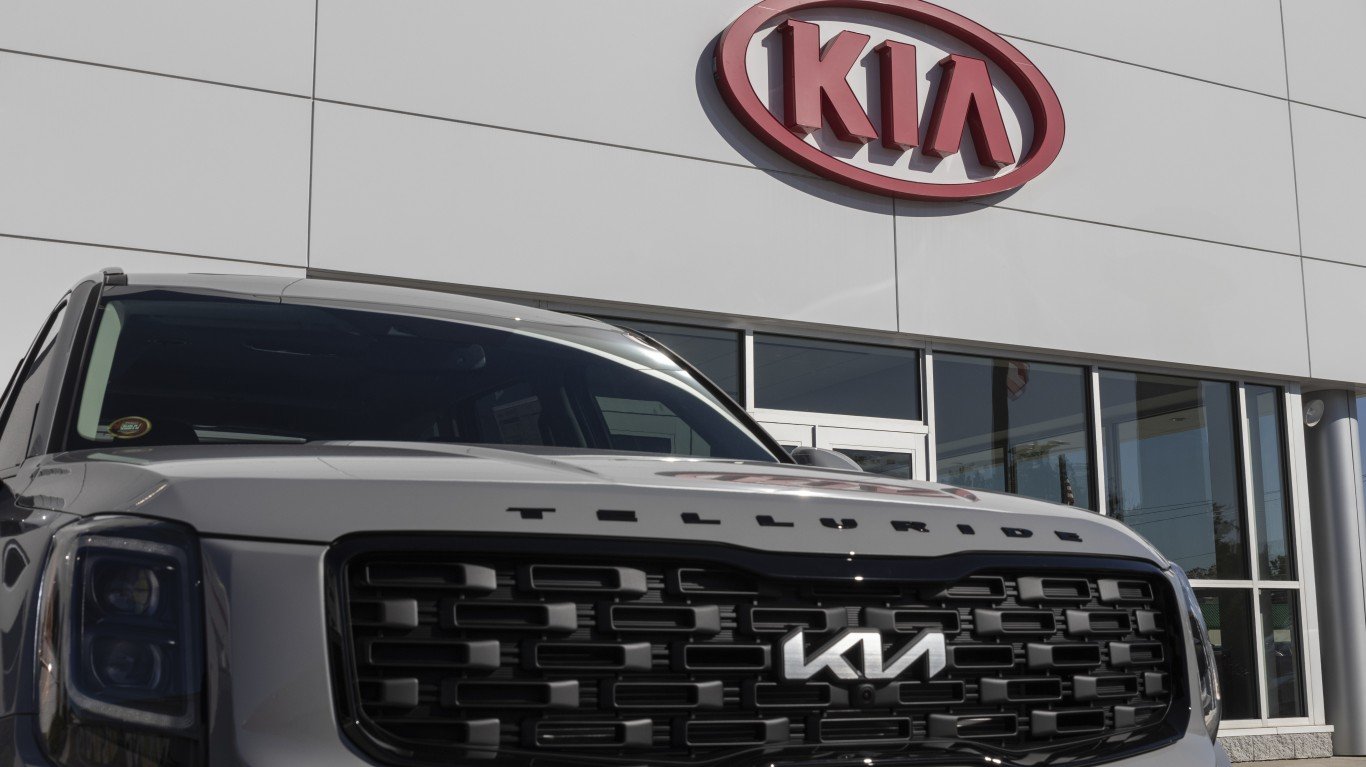
5. Kia
> EV sales, 2022: 372,294 (+52% from 2021) (Figures are for Hyundai/Kia)
> Total low-emission car sales, 2022: 509,439 – 6 highest of 23 on list
> Revenue (most recent FY): $61.05 billion – No. 212 on Fortune Global 500
> Country: South Korea
> Ambition: Accelerating EV transition to sell 1.2 million BEVs and 2 million eco-friendly cars in 2030; expanding proportion of eco-friendly cars to 52%
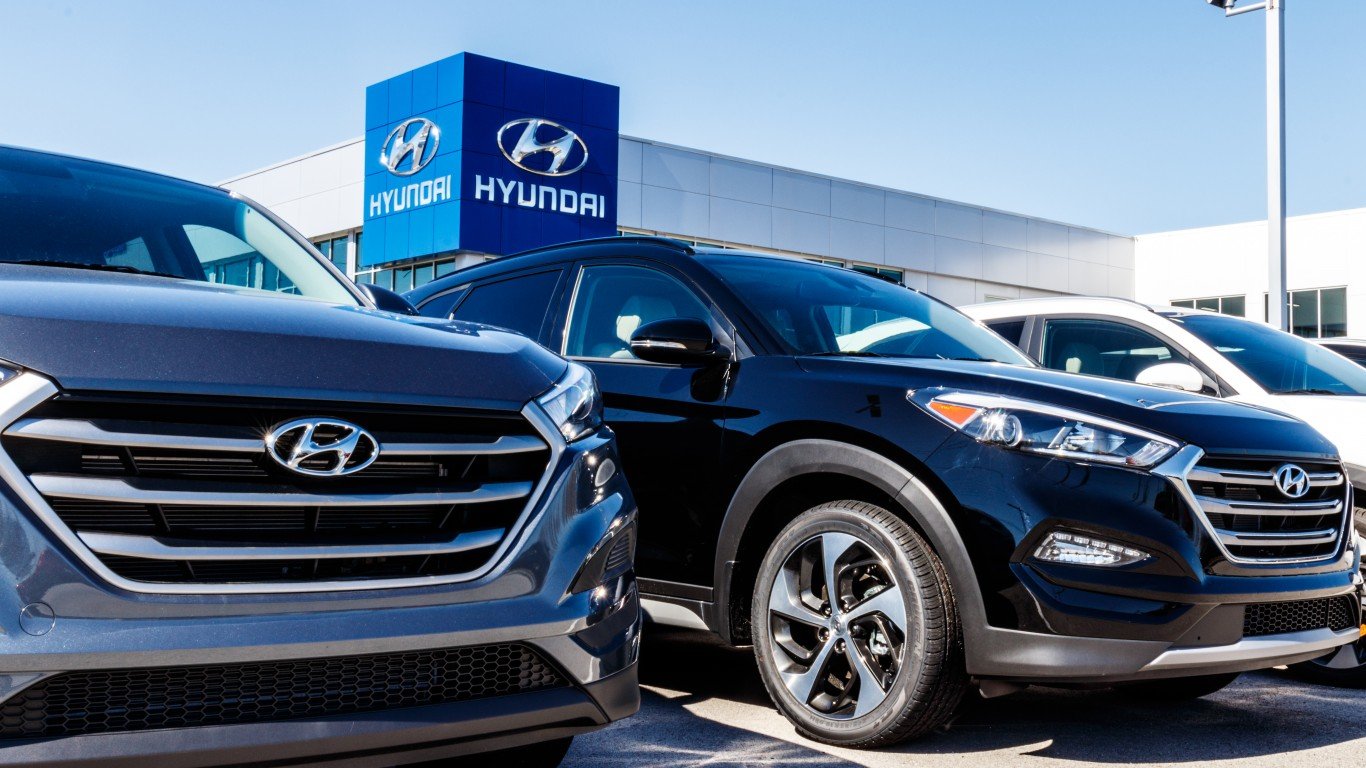
5. Hyundai Motor
> EV sales, 2022: 372,294 (+52% from 2021) (Figures are for Hyundai/Kia)
> Total low-emission car sales, 2022: 509,439 – 6 highest of 23 on list
> Revenue (most recent FY): $102.78 billion – No. 92 on Fortune Global 500
> Country: South Korea
> Ambition: Targets to sell 1.87 million BEVs annually by 2030 by introducing 17 new BEV models by then — 11 for Hyundai models and six for Genesis luxury brand
[in-text-ad-2]

4. General Motors
> EV sales, 2022: 568,645 (+13% from 2021)
> Total low-emission car sales, 2022: 584,600 – 4 highest of 23 on list
> Revenue (most recent FY): $127.00 billion – No. 64 on Fortune Global 500
> Country: US
> Ambition: 30â¯EV models and BEV production capacity of 1â¯million units in N. America by 2025, plus carbon neutrality in 2040
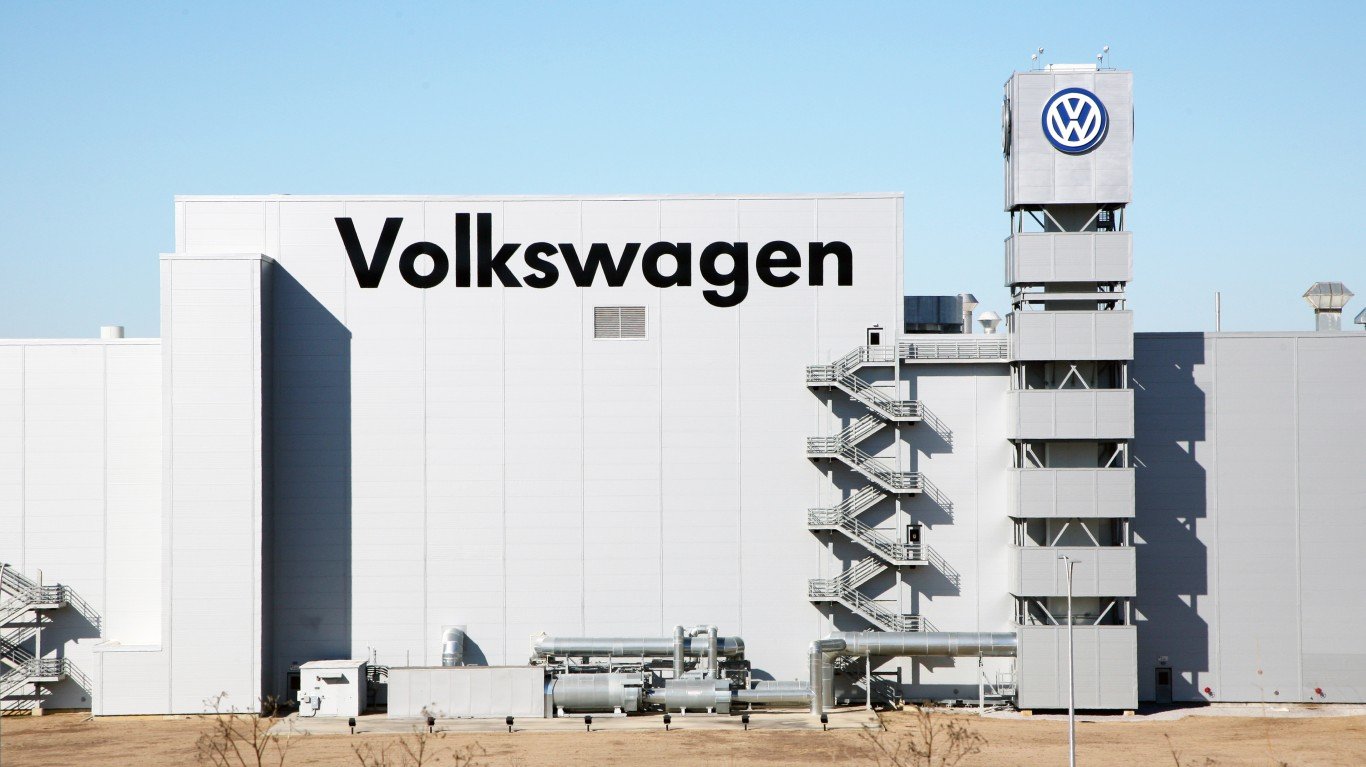
3. Volkswagen
> EV sales, 2022: 578,451 (+27% from 2021)
> Total low-emission car sales, 2022: 839,285 – 3 highest of 23 on list
> Revenue (most recent FY): $295.82 billion – No. 8 on Fortune Global 500
> Country: Germany
> Ambition: All-electric vehicles to exceed 70% of European and 50% of Chinese and US sales by 2030, and by 2040 nearly 100% to be ZEVs
[in-text-ad]

2. BYD
> EV sales, 2022: 913,750 (+179% from 2021)
> Total low-emission car sales, 2022: 1,858,247 – 1 highest of 23 on list
> Revenue (most recent FY): $32.76 billion – No. 436 on Fortune Global 500
> Country: China
> Ambition: Agreed in COP26 to 100% ZEVs by 2040 globally, and by no later than 2035 in leading markets; seeking to capture 40% of India’s EV market by 2030
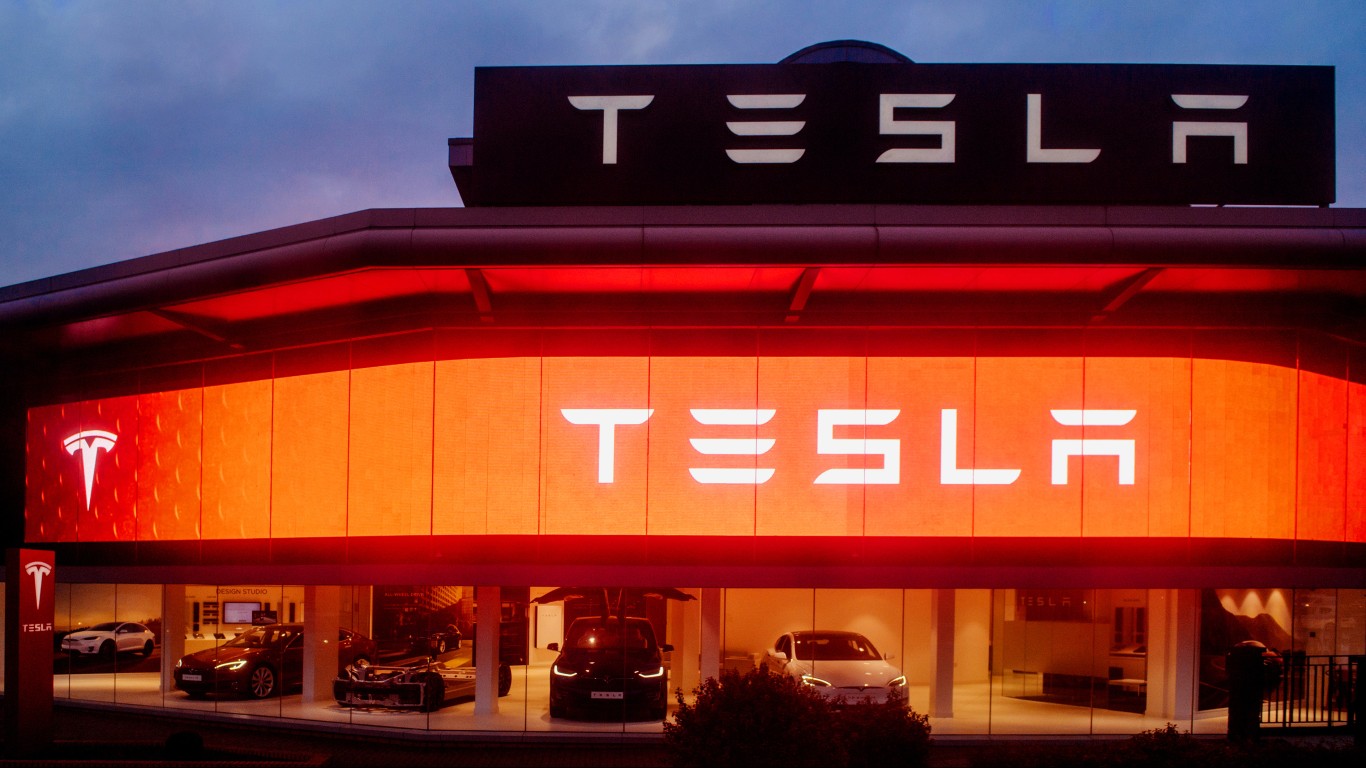
1. Tesla
> EV sales, 2022: 1,314,330 (+40% from 2021)
> Total low-emission car sales, 2022: 1,314,330 – 2 highest of 23 on list
> Revenue (most recent FY): $53.82 billion – No. 242 on Fortune Global 500
> Country: US
> Ambition: Sell 20 million EVs per year by 2030
Methodology
To find the EV ambitions of the world’s largest automakers, 24/7 Wall St. reviewed several sources, including the International Energy Agency’ Electric Vehicles and company and media reports. For the state-owned Chinese automakers we listed China’s EV goals. We ranked the 23 car companies found on the Fortune Global 500 by their 2022 EV sales, using data from EV-volumes.com – the electric vehicle sales database.
We added – also from EV-volumes.com – sales for all low-emission vehicles, which include battery electric (BEV), plug-in hybrid (PHEV), and fuel cell electric (FCEV). Revenue data is for the company’s most recent fiscal year and came from Fortune. Sales for some companies include joint ventures; for example, GM sales include SAIC-GM-Wuling Automobile.
Essential Tips for Investing: Sponsored
A financial advisor can help you understand the advantages and disadvantages of investment properties. Finding a qualified financial advisor doesn’t have to be hard. SmartAsset’s free tool matches you with up to three financial advisors who serve your area, and you can interview your advisor matches at no cost to decide which one is right for you. If you’re ready to find an advisor who can help you achieve your financial goals, get started now.
Investing in real estate can diversify your portfolio. But expanding your horizons may add additional costs. If you’re an investor looking to minimize expenses, consider checking out online brokerages. They often offer low investment fees, helping you maximize your profit.
Thank you for reading! Have some feedback for us?
Contact the 24/7 Wall St. editorial team.
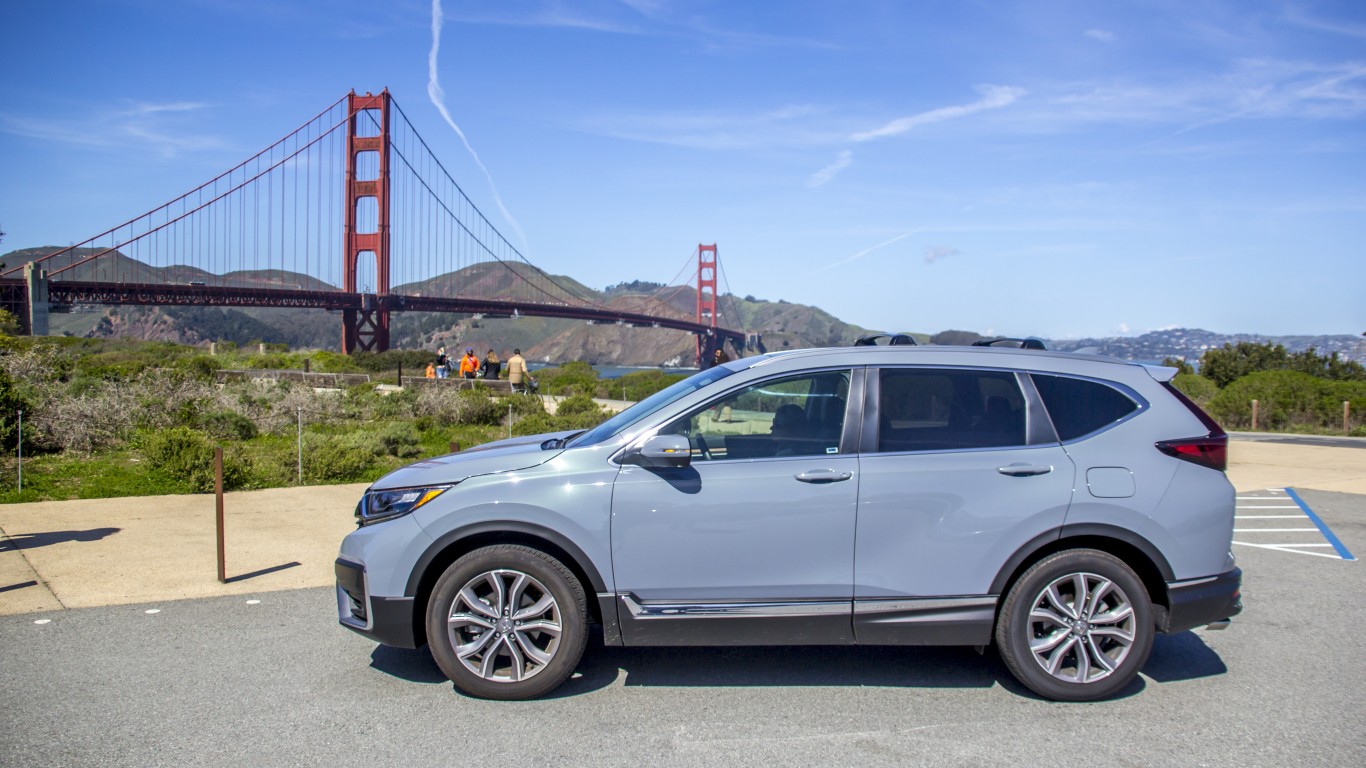 24/7 Wall St.
24/7 Wall St.


 24/7 Wall St.
24/7 Wall St.


